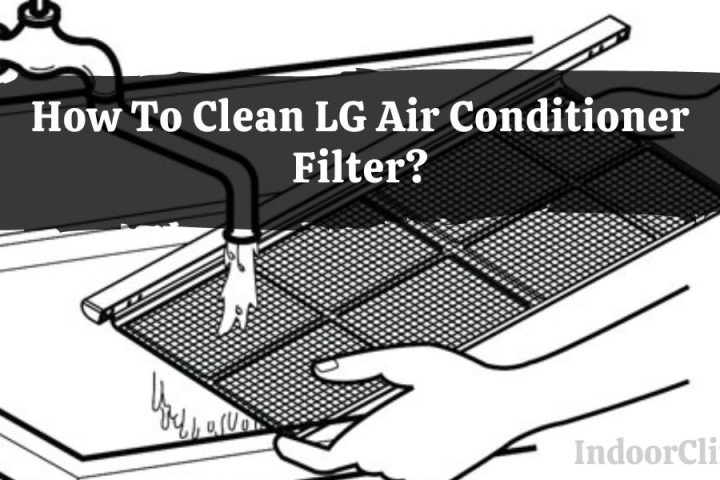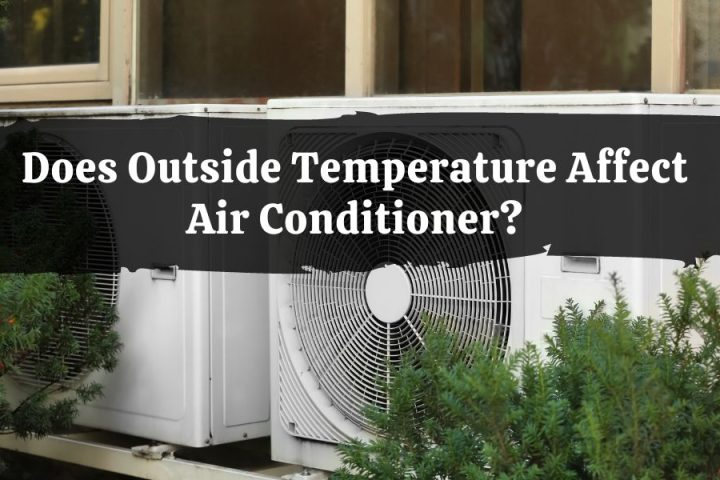Your air conditioner may make you sick if you experience a usual cold, a stuffy nose, or allergy-like indications while sitting in an air-conditioned setting.
Many individuals blame their HVAC system for air conditioning sickness, but it may merely contribute to a sickening environment due to particular circumstances.
This article will help you identify and realize how to use air conditioners effectively and safely.
Using an air conditioner may have harmful side effects. Yes, it can make you sick. Whether window-mounted or central air systems, air conditioning units have been linked with several health issues.
These issues include allergies, respiratory infections, and heart problems. So if you are deciding on purchasing an air conditioner this summer, you’ll want to take a few precautions.
Can Air Conditioning Make You Sick? Yes!
Yes, an air conditioner can make you unwell.
The origin of the problem is not your AC unit. The chilly air from your air conditioner or the machine itself does not make you sick.
Instead, the causes of your problems are air conditioning’s adverse effects. Your HVAC unit depends on the surroundings to fabricate a conducive climate for specific health problems.
An air conditioner flows the air in your area, and contaminants are quickly evacuated if your space contains them. Unfortunately, these toxins subsequently become the source of your health issues.
How Do I Know If My AC Is Making Me Sick?
Air conditioning, or AC, is a beautiful invention. You can turn it on in the summer to get relief from the heat and humidity.
Having an AC unit for allergies or asthma is also great since it helps keep pollen, dust mites, and other allergens at bay.
But sometimes, your air conditioning can make you feel worse instead of better. Here are some signs that your AC may be making you sick—and what to do about it:
Your symptoms don’t go away. If your allergies or asthma act up when you’re in a room with the air conditioner on but clear up immediately when you go outside or turn it off, that’s a sign that the air conditioner is making your allergy symptoms worse.
Your symptoms change. If your allergy symptoms worsen when you’re in an area with the air conditioner on but haven’t changed at other times, the AC could blame. It is especially true if your symptoms are worse than usual (such as sneezing more often or having watery eyes).
10 Symptoms of Air Conditioning Sickness

1. Visible Mold
You should be bothered if you notice visible mold on your walls, vents, or any other portion of your HVAC system. Mold spores can become airborne and circulate indoors with the conditioned air.
They can cause wheezing, throat discomfort, congestion, and other health problems.
It’s a good idea to examine your air ducts and vents regularly for any symptoms of mold growth.
When a problem is discovered, contact a professional as soon as possible to address the issue and prevent additional infestation.
2. Breathing or Respiratory Issues
Many people have breathing and respiratory problems when they sit in an air-conditioned area and feel better when they leave.
Unfortunately, it frequently occurs when the air conditioner, particularly the air filters, is not cleaned or replaced when necessary.
Air filters trap dirt, bacteria, and fungi. Unfortunately, the air filters will free these airborne particles into your room instead of filtering them out if they are not cleaned on time!
As a result, you breathe dirty air, which causes air conditioning illness.
3. Cold or Allergy-Like Symptoms
In that situation, you’re likely suffering from air conditioning illness. Coughing, sneezing, wheezing, throat inflammation, and other symptoms may be present.
This indication means that your air conditioner needs to be serviced. Clogged air filters are frequently the source of the problem.
Moldy air ducts are another possibility. As a result, you should call a specialist to schedule a maintenance checkup as soon as possible.
4. Dry, Flaky, or Itchy Skin

The moisture in indoor air is removed by your air conditioner, which cools your room. Dry, flaky, or itchy skin may emerge due to this.
Also, if you run your air conditioner for too long, the humidity will drop to dangerously low levels.
To maintain appropriate indoor humidity, prevent the temperature from becoming too chilly. You can also use an intelligent air conditioner controller or thermostat to regulate room humidity levels with your air conditioning.
Also, keep your skin hydrated by moisturizing it properly and drinking enough water.
5. Irritated or Dry Eyes
Indoor humidity levels are reduced by air conditioning, making you unwell. In addition, the evaporation of tears from your eyes is standard when the humidity is low.
Your eyes may become dry and irritated as a result of this. People with dry eye syndrome should avoid sitting in air conditioning for long periods.
6. Dehydration

The dehumidification procedure is the one that keeps your space cool, resulting in deficient indoor moisture levels.
The low humidity accelerates the process of evaporation from your body. As a result, when the temperature is adjusted to an insufficient level, you become cold and thirsty.
7. Prolonged Headaches and Dizziness
You may get dizziness or headaches when sitting in an air-conditioned room for an extended period.
It could be due to the dehydration caused by the continual dehumidification.
8. Increased Blood Pressure

Our blood pressure and overall health are directly affected by our living temperature. The tiny arteries limit the loss of body heat to maintain body temperature.
Blood pressure increases as a result of this resistance.
People with hypertension should avoid using a shallow thermostat setting and instead aim to limit it to a bare minimum.
9. Feeling Tired All the Time
When you sit in an air-conditioned space, your body expends energy to stay warm to maintain body temperature. Tiredness is the outcome of this persistent squandering of energy.
The chilly air may also stiffen your muscles, constantly leaving you exhausted.
You may spend too much time in the air conditioning when you’re fatigued despite getting enough rest and sleep. To feel better, go for a stroll in the fresh air.
10. Heat Intolerance
Nobody enjoys walking around in the heat, but you’ve developed heat intolerance if it’s becoming practically hard for you to bear the heat.
Likewise, people who rely too heavily on air conditioning are more likely to develop heat intolerance.
To avoid growing increasingly reliant on a regulated room environment, utilize a fan and open windows for fresh air.
Is Air Conditioning Bad For You? No!

No—providing your AC is properly maintained; it’s a safe and effective way to control the temperature in your home and keep things comfortable.
The air from your air conditioner is clean, filtered air treated to keep germs and other particles out.
It makes a much more comfortable environment for anyone with allergies or other breathing difficulties.
It can also help those who suffer from hay fever since pollen and other allergens are filtered.
That’s why keeping your air conditioner in good condition and maintaining a comfortable temperature in your home is essential.
What Can You Do to Avoid Air Conditioning Sickness?
You can mitigate the risks to your health by taking a few simple precautions.
The first thing is to schedule regular maintenance and system checkups from a professional HVAC technician.
They can ensure your system runs as efficiently as possible and fix any problems before they become significant.
Additionally, it would be best always to clean your air filters regularly—at least once a month.
The filter is there to catch harmful particles that could lead to allergies or illness, so keeping it clean and clear of debris is essential.
Finally, if you have a thermostat controller, program it only to cool your home when someone is there, and no one will sleep.
It will reduce your risk of developing air conditioning sickness while helping you save money on your energy bill.
What Are the Side Effects Of Air Conditioners?
There are several health risks associated with the long-term use of air conditioners, including:
Respiratory Issues
Air conditioning units require filters to keep the air clean inside your home or workspace.
While these filters can help remove allergens, dust, and other impurities from the air, they also tend to collect mold and bacteria.
It causes unhealthy airborne particles, leading to respiratory issues for people with asthma or allergy sensitivities.
Allergies And Asthma
AC units can trigger asthma attacks by blowing dust mites into the air previously dormant on furniture or walls.
In addition, it is hazardous for those who suffer from an allergy to cold air during the hot months when AC units are more frequently used.
Noise Pollution
Air conditioners create noise pollution by emitting an unpleasant buzzing sound that can cause anxiety for some people, making it difficult to sleep or concentrate.
In addition, unusually loud air conditioners can cause hearing damage for nearby residents. This is especially a problem for older units that have not been well-maintained.
Infectious Diseases
If one family member has an airborne illness such as influenza, it will go into the air conditioner when they cough and circulate throughout the house when the unit switches on again.
It makes getting sick with influenza or another respiratory infection easier for every family member.
Indoor Pollutants
Another potential side effect of air conditioning is indoor air pollution. When the air conditioner cycles on, it sucks up all of the air in the room, which can circulate mold spores and other irritants.
Over time, this can cause allergic reactions and other health problems for people sensitive to allergens.
Can You Get Sick From Air Conditioning Blowing On You?
Blowing chilly air toward you enhances the risk of a virus spreading since the cool air might cause dehydration in some areas of your body, such as the nostrils.
In addition, viruses favor a low-humidity environment, so you become more susceptible to disease when the air conditioner is turned on.
Most experts agree that temperature variations from heating and air conditioning systems can affect your ability to fight viruses.





